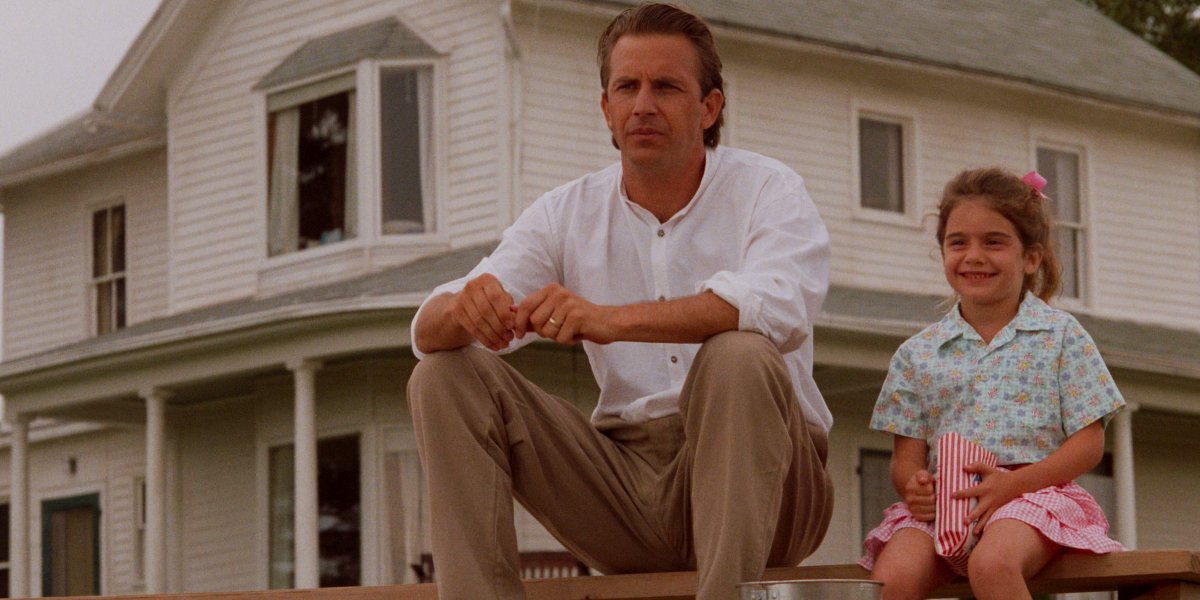10 Moneyball Behind-The-Scenes Facts You Might Not Know
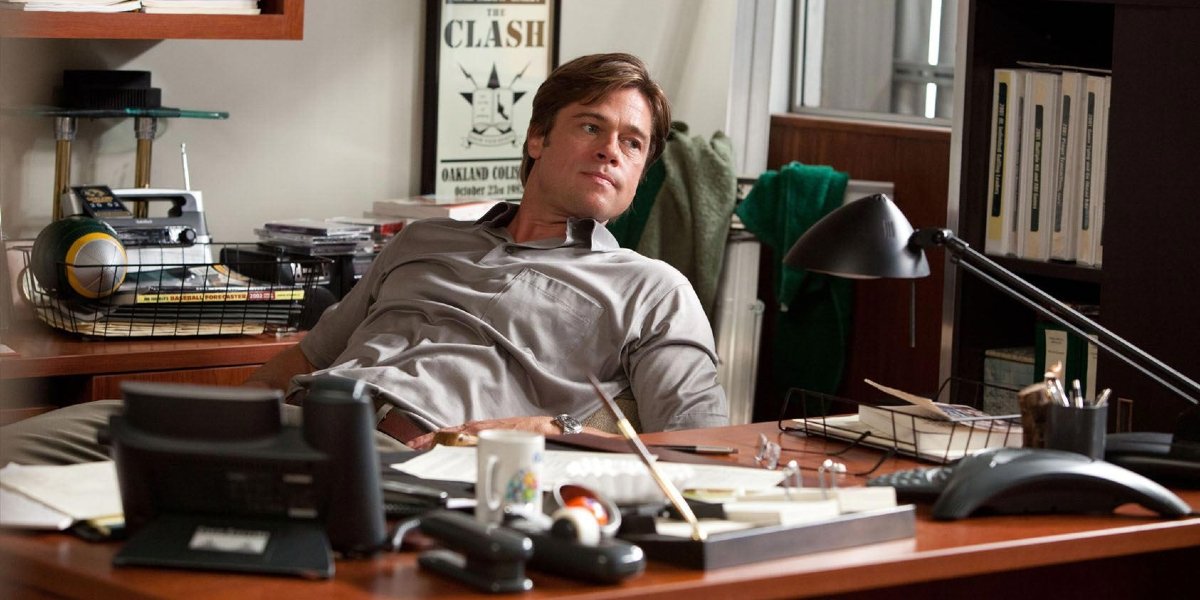
In September 2011, a little more than a decade after Oakland Athletics general manager Billy Beane revolutionized the game of baseball with the use of advanced analytics, Moneyball was released and shared the improbable story of the sports executive and a team of outcasts, washed-up players, and relative nobodies with moviegoers. And, just like the 2002 Oakland A’s at the center of its story, Moneyball was anything but a guarantee and went through multiple changes before the Academy Award-nominated Brad Pitt sports drama saw the light of the day.
These Moneyball behind-the-scenes facts, from the ideation, planning, and production, give you a greater appreciation of the movie, its cast, and their motivations, and help make an even stronger case for it being a timeless classic that inspires as much as it entertains moviegoers all these years later. Here’s the story of Moneyball…
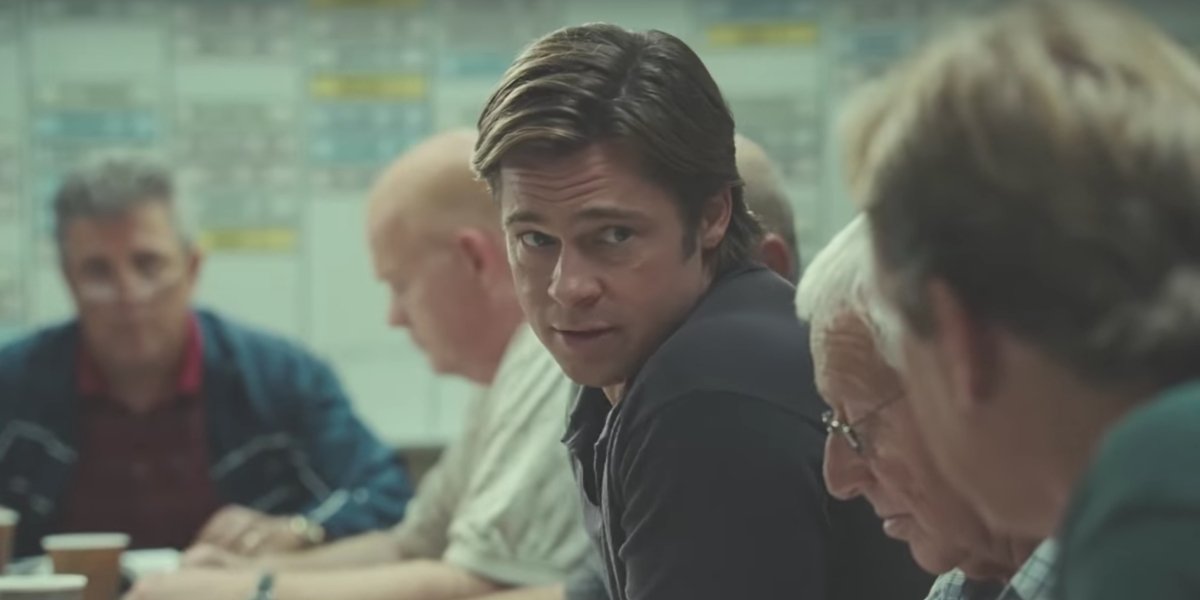
Plans For A Moneyball Adaptation Got Underway Not Long After Michael Lewis’ Book Was Published In 2003
Moviegoers were introduced to Billy Beane (Brad Pitt) and the rest of the staff and players of the Oakland Athletics when Moneyball opened in theaters in September 2011, but work on the film began long before that. In June 2003, Michael Lewis published his nonfiction book, Moneyball: The Art of Winning an Unfair Game, which covered everything from the Athletics’ farm system and how Beane changed the way prospective players are scouted to finding ways to make the most of a small-market team’s limited payroll.
In 2004, Sony Pictures optioned the book, per Variety, and assigned Stan Chervin to pen the script, though that screenplay and the course of the movie would go through several changes before baseball movie fans would see Moneyball. At one point, David Frankel was attached to direct, but the Marley and Me director would bow out with Steven Soderbergh taking his place, though he would never start shooting.
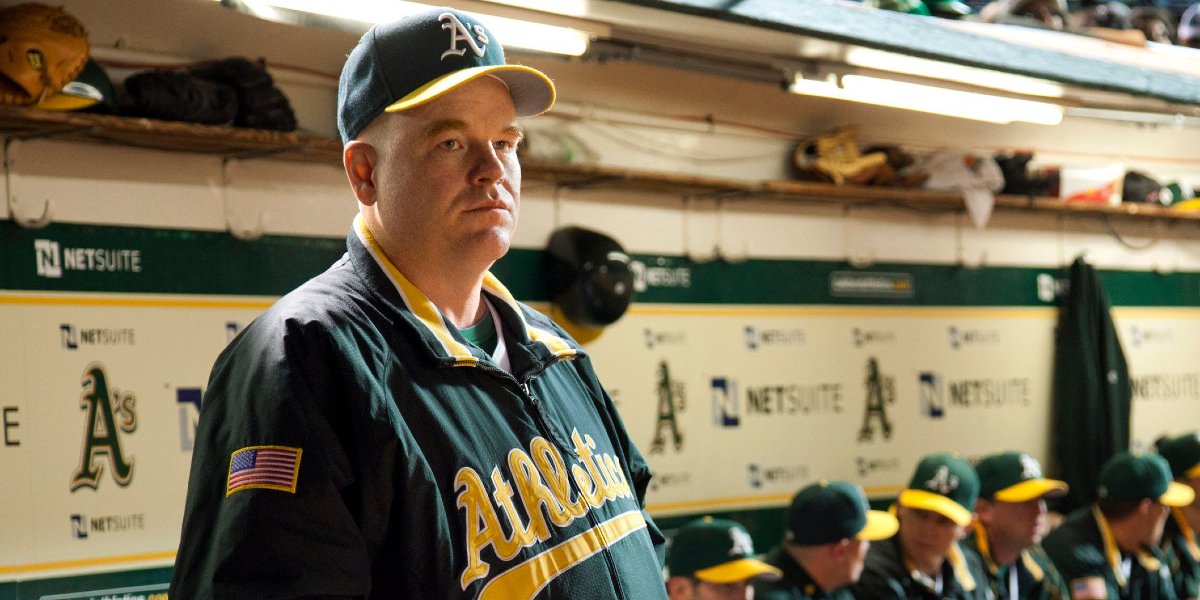
The Original Version Of Moneyball Featured Players And Coaches From The 2002 Oakland Athletics Playing Themselves
Philip Seymour Hoffman, Chris Pratt, and Stephen Bishop all gave outstanding performances as Art Howe, Scott Hattenberg, and David Justice, respectively, in Moneyball, but at one point none of those three actors were set to appear in the biographical sports drama. Back in May 2009, when Steven Soderbergh was still set to direct, the manager and two stars of the 2002 Oakland Athletics were set to portray themselves in the movie, as reported by the East Bay Times. These plans obviously changed when Soderbergh’s version of the movie was scrapped and the trio of actors were brought on to play the on-screen versions of the real-life baseball figures.
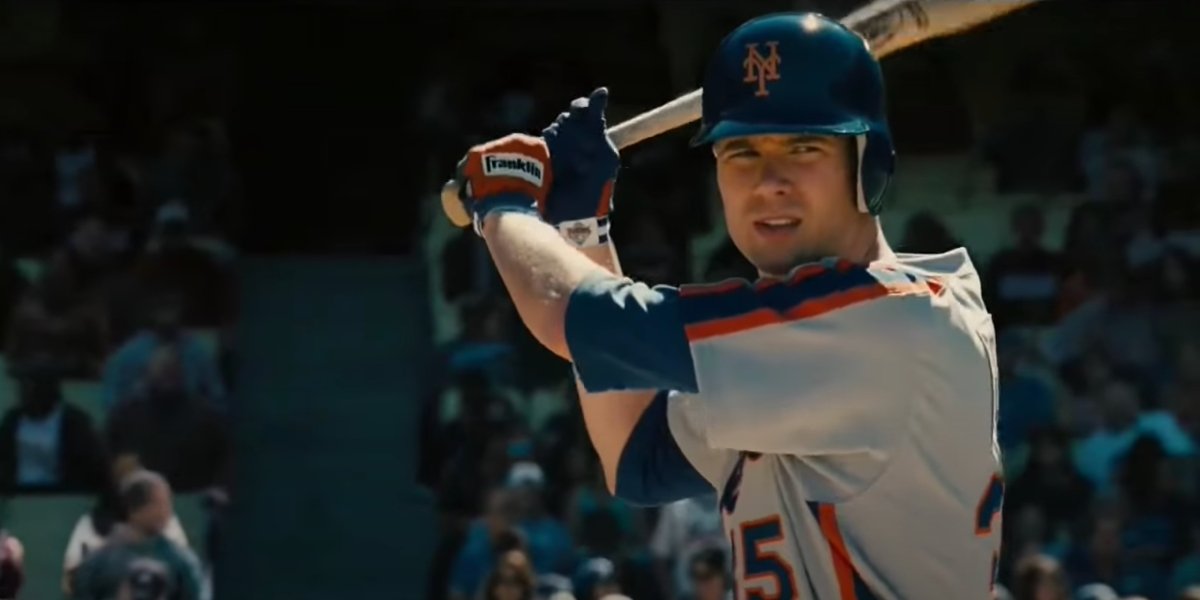
The Billy Beane Flashback Sequences Were Originally Set To Include Interviews With Former Mets Darryl Strawberry And Lenny Dykstra
In addition to telling the story of Billy Beane’s Oakland Athletics, Moneyball also features a series of flashbacks showing the baseball executive’s time in the New York Mets system. This section of the movie was originally set to include on-screen interviews with some of Beane’s real-life teammates, including Darryl Strawberry and Lenny Dykstra, who went on to win a World Series with the Metropolitans the year after Beane was traded to the Minnesota Twins. According to Variety, the two players were going to share stories about their time with the one-time phenom who never met the hype and later left the field for a front office job with the Athletics.
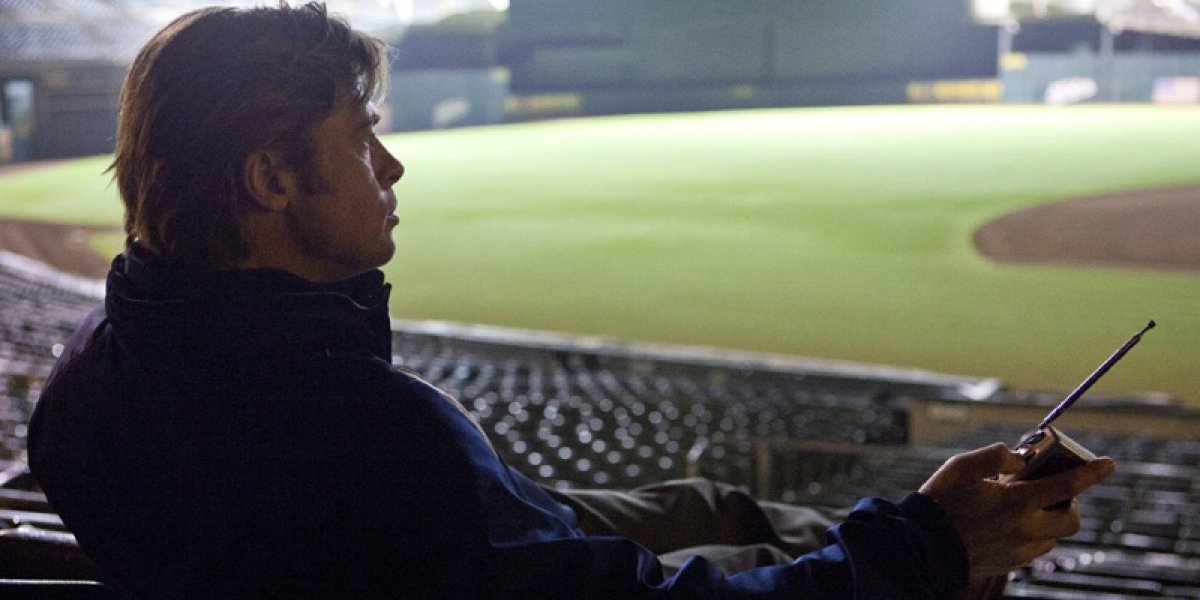
Steven Soderbergh’s Version Of Moneyball Was Called Off Just Days Before It Was To Enter Production
Production was initially set to kick off on Moneyball in July 2009, but the project was scrapped and sent to purgatory just five days before cameras were to start rolling. According to The Guardian, the abrupt decision to call off the shoot came down from Sony Pictures, which was not fond of last minute rewrites made by director Steven Soderbergh that were believed to be too “arty” and full of inside baseball talk that studio executives feared would alienate audiences. The decision was also believed to be made final when Soderbergh refused to compromise with the studio.
Your Daily Blend of Entertainment News
Once Sony called off the film, it was put on the open market but no one, including Warner Bros. and Paramount, wanted to take a risk just a few months into the Great Recession. This would not be the end of Moneyball…
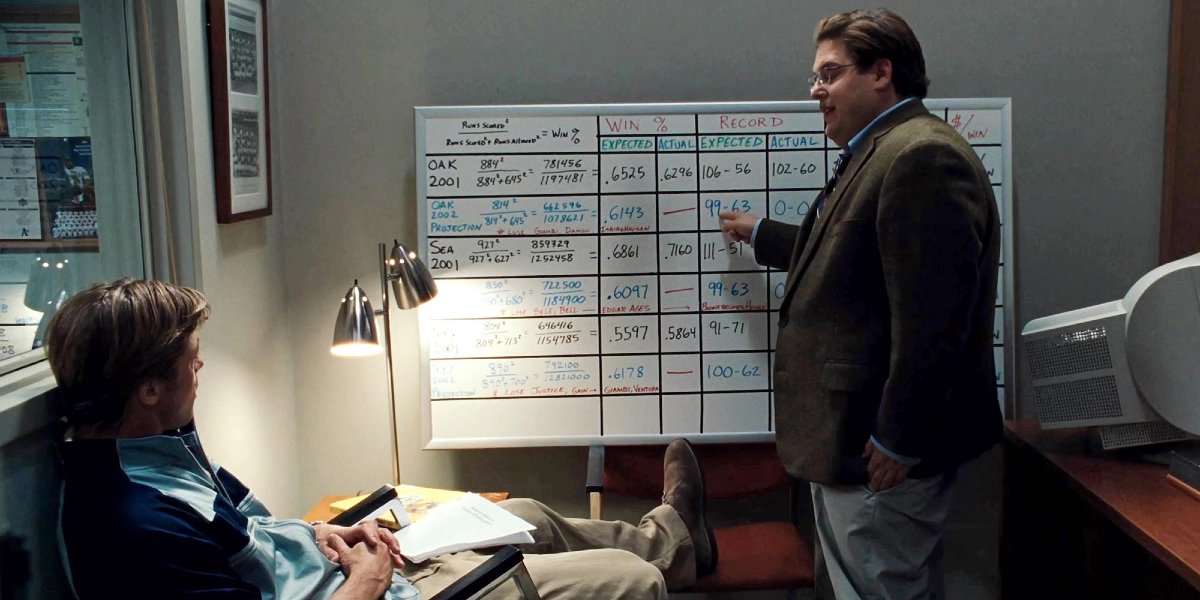
Demetri Martin Was Initially Cast In The Role That Eventually Went To Jonah Hill
Jonah Hill was nominated for multiple awards, including an Oscar and Golden Globe, for his portrayal of Peter Brand in Moneyball, but the Superbad star wasn’t the first choice to play Brad Pitt’s on-screen assistant. Back when Steven Soderbergh was still attached to direct the sports drama, comedian-turned-actor Demetri Martin was cast as Paul DePodesta, the real-life figure on which the Brand character was later based. The decision came down in March 2010, with the report noting the change was made to give the movie a broader comedic appeal. In hindsight, it’s not hard to see why Sony Pictures would want someone like Hill playing a character with so much time on screen.
Not long after Jonah Hill was cast in the role, the real-life Paul DePodesta successfully petitioned for the producers to change the name, with Vulture reporting that the former Athletics assistant general manager feeling the character was fictitious and only loosely based on him at that point.
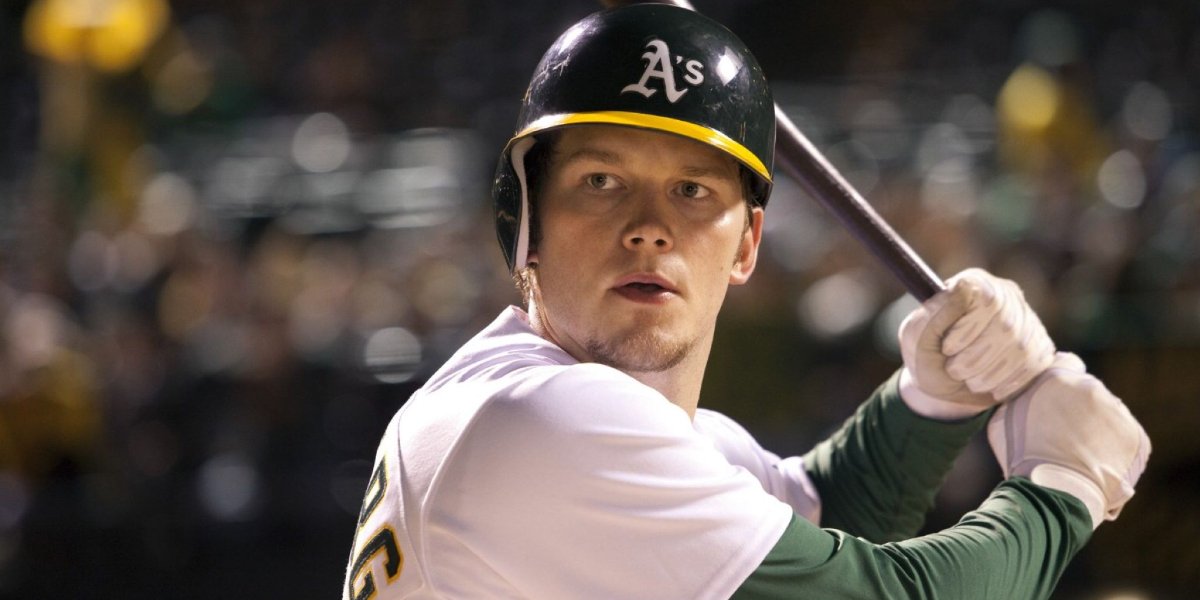
Chris Pratt Was Told He Was ‘Too Fat’ To Play Scott Hattenberg In Moneyball
Chris Pratt has gone on to become of the biggest names in action movies with unforgettable performances in the Guardians of the Galaxy movies, the Jurassic World franchise, and others like 2021’s The Tomorrow War, but the actor wasn’t always in action hero shape and nearly lost out on a role in Moneyball because of it. When speaking with Vanity Fair in 2017, Pratt revealed that when he first auditioned for the role of Scott Hattenberg, his weight was a major problem, stating:
That was the first time I heard someone say, ‘We’re not gonna cast you — you’re too fat.’ So I decided to drop the weight, like in wrestling. I couldn’t afford a trainer, so it was all running and crash-dieting and cutting alcohol.
Not long after dropping the weight and joining the Moneyball cast, Chris Pratt earned a role in Zero Dark Thirty, and the rest is history.
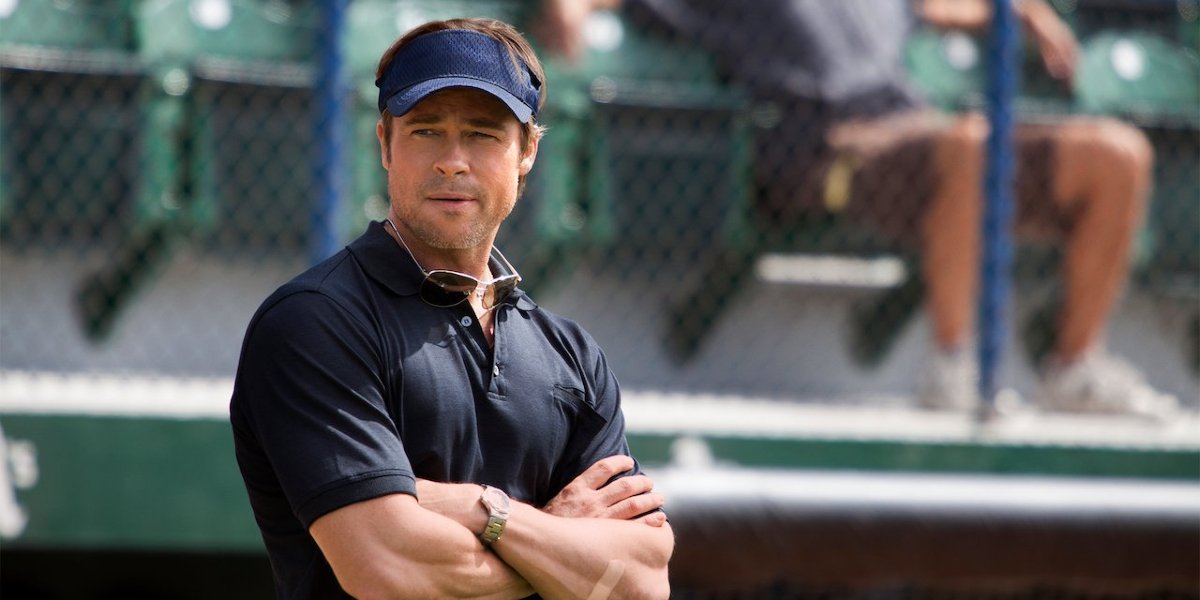
Director Bennett Miller Initially Had Doubts About Directing Moneyball Before Meeting With Brad Pitt
Bennett Miller, the third and final person to help and the only director to actually shoot anything, came on board in 2010, but when he got the initial call from Brad Pitt (who was producing the picture) about signing on to make the film, the filmmaker behind Capote wasn’t fully convinced it could be pulled off. Miller told The Hollywood Reporter that after reading the original book and several different drafts of the script, he flew to Los Angeles full of doubt, wondering if the studio would be open to something he wanted to try.
Instead of treating Moneyball like a traditional sports movie, Bennett Miller and Brad Pitt agreed they wanted to make a more subversive film that avoided the tropes and conventional wisdom. After hearing his ideas, Sony Pictures agreed to tell that story and give audiences a unique drama.
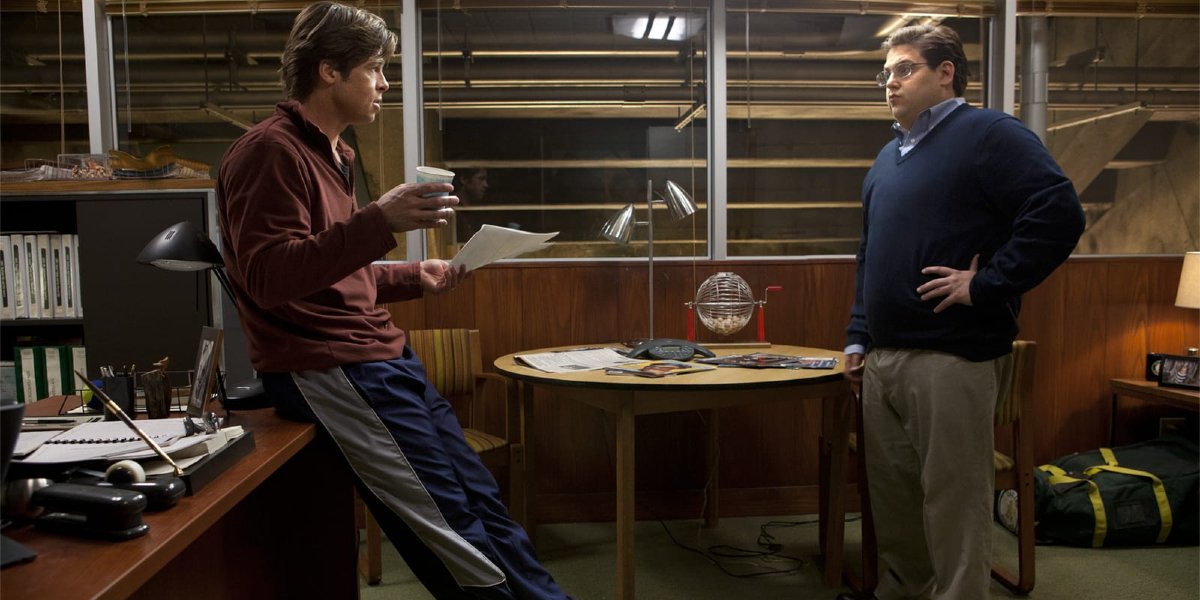
Screenwriters Aaron Sorkin Steven Zaillian Worked On Moneyball Separately And Bennett Miller Put Their Scripts Together
Although Moneyball plays like it’s the single vision of one person, the film’s script was actually pieced together by combining scenes and elements of the various screenplays written by Stan Chervin, Aaron Sorkin, and Steve Zaillian. Chervin’s original script from the project’s early days would later be retooled time and time again by Zaillian and Sorkin who would work on different scenes separately. The two writers would then submit their work to director Bennett Miller, who would then piece them together to create a cohesive story, per The Hollywood Reporter. All three writers would end up receiving Oscar and Golden Globe nominations for their work on the film.
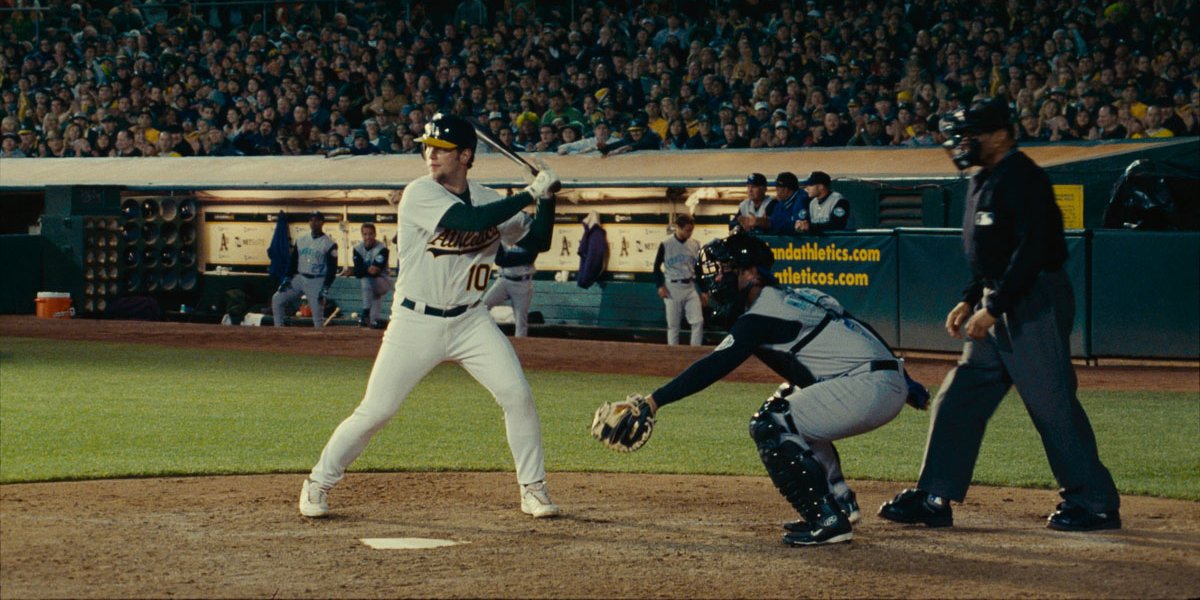
Moneyball’s Baseball Sequences Were Shot At Dodger Stadium And The Oakland Coliseum
The on-screen baseball action featured in Moneyball was filmed at various locations throughout California, including two Major League Baseball stadiums. The most iconic location of the shoot, Dodger Stadium in Los Angeles, was transformed to look like a 1984 version of itself to feature one of the games in the various Billy Beane flashback sequences as well as the fantastic montage sequence during the Oakland Athletics’ 20-game winning streak during the 2002 season, per the Los Angeles Times. But, unlike movies like Major League, which didn’t use the real-life stadium as its on-screen counterpart, Moneyball also filmed several scenes at the Oakland Coliseum, per Mercury News. Additional baseball scenes were shot at Blair Field in Long Beach, California.
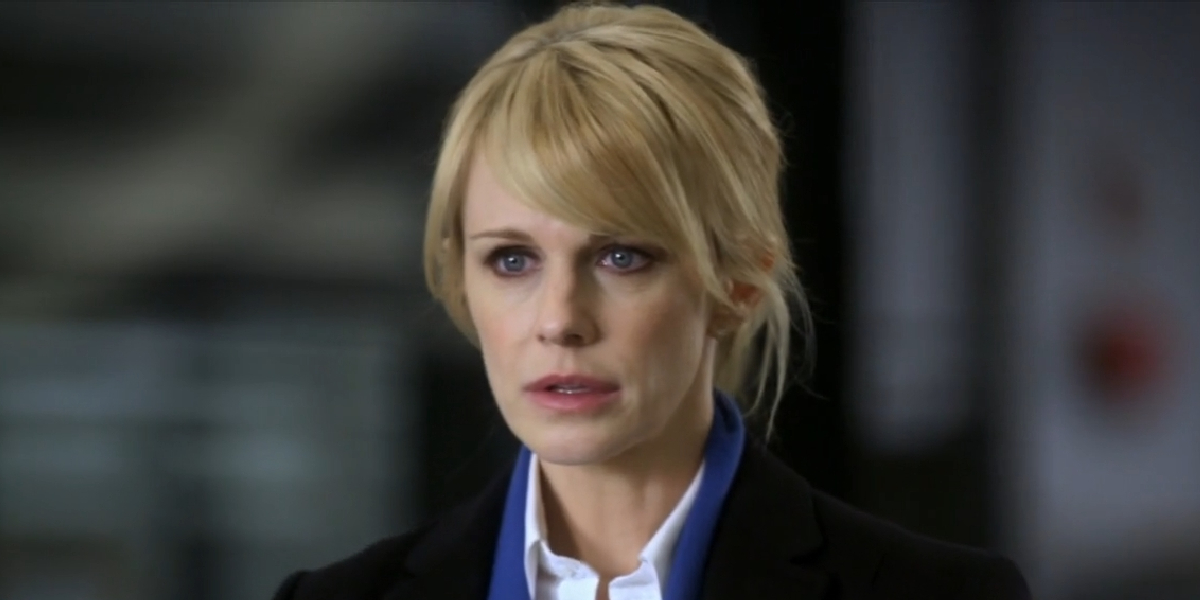
Cold Case Star Kathryn Morris Portrayed Billy Beane’s Second Wife But Her Scenes Were Cut
Robin Wright plays Billy Bean’s ex-wife Sharon in Moneyball, but the Oakland Athletics general manager was originally supposed to have a second wife in the movie named Tara, but the character didn’t make the final cut. The Cold Case star joined the film’s cast in July 2010 and even shot her scenes, but the entirety of her performance was left on the cutting room floor. According to the Los Angeles Times, no official word was ever given why Morris’ four scenes were cut, though traces of the character (specifically Billy Beane’s wedding ring) remain in the final product.
After reading about all these behind-the-scenes facts about Moneyball, now is the perfect time to go back and watch the instant-classic all over again. But, before you do that, check out all the great 2021 movies coming to theaters and streaming services near you.

Philip grew up in Louisiana (not New Orleans) before moving to St. Louis after graduating from Louisiana State University-Shreveport. When he's not writing about movies or television, Philip can be found being chased by his three kids, telling his dogs to stop barking at the mailman, or chatting about professional wrestling to his wife. Writing gigs with school newspapers, multiple daily newspapers, and other varied job experiences led him to this point where he actually gets to write about movies, shows, wrestling, and documentaries (which is a huge win in his eyes). If the stars properly align, he will talk about For Love Of The Game being the best baseball movie of all time.
